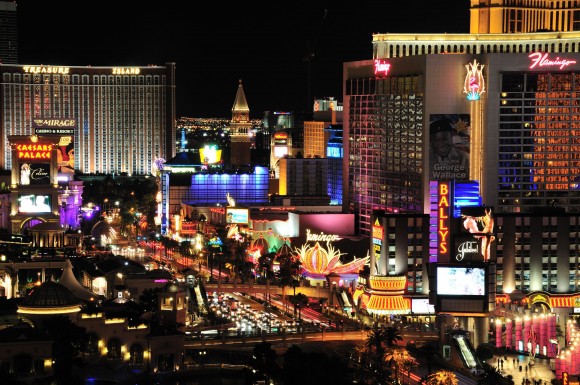A Nevada judge has said she wants proof she would have the authority to order the governor to rescind a coronavirus pandemic directive and let Las Vegas-area bars and taverns reopen.
“What is the law that says I have a duty to review the state action on an ongoing basis?” Judge Kerry Earley asked near the end of nearly two hours of arguments about whether Clark County bars and taverns can force Gov. Steve Sisolak to lift the closure order he re-imposed July 27.
The state’s attorney, Craig Newby, said he found no precedent for such an action, and it was up to the Democratic governor, as an elected official, to weigh “the balance of hardship and the public interest.”
The governor is “trying to manage the ongoing emergency response to what is known as the novel coronavirus,” said Newby, a deputy state solicitor general. “The response is going to change over time.”
Attorney Dennis Kennedy, representing 62 Clark County businesses in the case that he said affects hundreds more, told Early she could rely on court rulings in recent years from Iowa and Texas.
Kennedy also quoted U.S. Supreme Court Justice Samuel Alito’s dissenting opinion last month when the court denied a rural Nevada church’s bid to strike down as unconstitutional Sisolak’s 50-person cap on worship service occupancy due to conronavirus concerns.
“As more medical and scientific evidence becomes available, and as states have time to craft policies in light of that evidence, courts should expect policies that more carefully account for constitutional rights,” Alito wrote.
Earley agreed to review the Iowa and Texas cases before issuing her decision, possibly Friday, on Kennedy’s request for an injunction and restraining order.
“This lawsuit doesn’t challenge the governor’s authority to act,” Kennedy acknowledged about the case filed July 12. “He has the authority. He thought it was the right thing to do.”
But the attorney argued that after taking emergency action, Sisolak should now reconsider.
The bar closure order “singled out this particular group of businesses” for economic hardship, and continues to cripple businesses that were complying with rules aimed at preventing the spread of COVID-19 and idling thousands of employees, Kennedy said. He guessed that most of his clients employ between 15 and 20 people.
Bars were closed for 48 days before being allowed to reopen June 30, more than three weeks after casinos were permitted to reopen June 4, the attorney said.
By July 3, state inspectors reported that 80% of bars they visited were compliant with mask-wearing and crowd distancing directives, the same percentage as casino gambling floors.
Bars were ordered closed again July 27. Casinos remain open.
“There is no evidence that continued operations of bars and taverns in Nevada that are compliant with social distancing and face covering … (is) disproportionately contributing to the spread of COVID-19,” Kennedy said in written filings.
The judge made it clear she would weigh the question of her authority to act before she considers what she called “equal protection and rational due process” issues.
In written filings, Newby characterized bar closures as “a lesser hardship than further allowing the COVID-19 virus to spread throughout Nevada,” killing people and ruining the economy.
“These are not easy decisions for the governor to make,” the state attorney general’s deputy wrote.
He quoted from a 115-year-old U.S. Supreme Court decision in a case from Massachusetts that said that during health crises, “it is no part of the function of a court” to determine the most effective way to protect the public against disease.
Topics Lawsuits Legislation
Was this article valuable?
Here are more articles you may enjoy.



 Q4 Global Commercial Insurance Rates Drop 4%, in 6th Quarterly Decline: Marsh
Q4 Global Commercial Insurance Rates Drop 4%, in 6th Quarterly Decline: Marsh  Allstate CEO Wilson Takes on Affordability Issue During Earnings Call
Allstate CEO Wilson Takes on Affordability Issue During Earnings Call  Uber Jury Awards $8.5 Million Damages in Sexual Assault Case
Uber Jury Awards $8.5 Million Damages in Sexual Assault Case  Chubb CEO Greenberg on Personal Insurance Affordability and Data Centers
Chubb CEO Greenberg on Personal Insurance Affordability and Data Centers 

